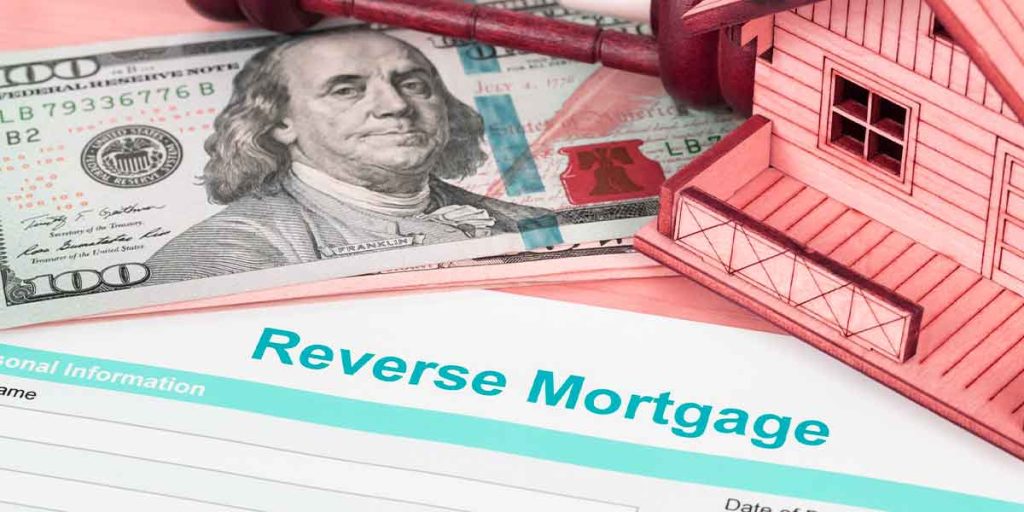Top Reasons to Purchase Reverse Mortgage for Homeowners Over 62
Top Reasons to Purchase Reverse Mortgage for Homeowners Over 62
Blog Article
Unlock Financial Liberty: Your Guide to Buying a Reverse Home Loan
Understanding the details of reverse home loans is essential for house owners aged 62 and older looking for monetary freedom. As you consider this choice, it is essential to comprehend not only just how it functions however additionally the ramifications it might have on your financial future.
What Is a Reverse Home Mortgage?

The basic appeal of a reverse home loan hinges on its possible to enhance financial versatility throughout retired life. Property owners can use the funds for different objectives, including medical expenses, home renovations, or daily living prices, hence supplying a security internet during a critical point of life.
It is necessary to comprehend that while a reverse mortgage enables raised capital, it also lowers the equity in the home in time. As interest builds up on the outstanding car loan equilibrium, it is crucial for potential consumers to thoroughly consider their long-lasting monetary plans. Consulting with a reverse home mortgage or a monetary consultant specialist can supply beneficial insights into whether this option aligns with an individual's monetary goals and conditions.
Eligibility Demands
Recognizing the eligibility needs for a reverse home loan is crucial for property owners considering this monetary option. To certify, candidates have to be at the very least 62 years old, as this age criterion permits senior citizens to accessibility home equity without monthly home loan payments. Furthermore, the homeowner has to inhabit the house as their main house, which can include single-family homes, specific condominiums, and manufactured homes satisfying certain guidelines.
Equity in the home is another important requirement; property owners typically require to have a significant quantity of equity, which can be established through an appraisal. The quantity of equity available will directly affect the reverse home loan amount. Candidates need to demonstrate the capacity to keep the home, including covering building taxes, house owners insurance policy, and maintenance expenses, making certain the home remains in excellent condition.
Additionally, possible debtors have to undergo a monetary assessment to review their earnings, credit report, and overall monetary situation. This analysis assists lenders figure out the candidate's ability to fulfill ongoing obligations associated to the residential property. Fulfilling these needs is crucial for protecting a reverse home mortgage and making certain a smooth monetary transition.
Benefits of Reverse Mortgages
Numerous benefits make reverse mortgages an appealing alternative for senior citizens wanting to improve their monetary versatility. purchase reverse mortgage. Among the primary benefits is the capacity to transform home equity into cash money without the demand for monthly home mortgage settlements. This attribute permits seniors to accessibility funds for different needs, such as medical costs, home renovations, or daily living prices, thus alleviating monetary tension
Additionally, reverse mortgages offer a safety net; elders can continue to reside in their homes for as lengthy as they fulfill the finance needs, cultivating stability throughout retired life. The earnings from a reverse mortgage can additionally be made use of to delay Social Protection advantages, possibly causing greater payments later.
Additionally, reverse home loans are non-recourse financings, implying that consumers will certainly never owe greater than the home's worth at the time of sale, shielding them and their successors from economic obligation. Lastly, the funds received from a reverse home loan are usually tax-free, including another layer of economic alleviation. In general, these advantages setting reverse mortgages as a functional service for senior citizens looking for to boost their financial circumstance while maintaining their cherished home environment.

Costs and Fees Included
When taking into consideration a reverse home mortgage, it's vital to recognize the various prices and fees that can influence the overall economic image. Comprehending these expenditures is essential for making a notified decision regarding whether this financial click item is appropriate for you.
Among the key prices connected with a reverse home mortgage is the source charge, which can differ by lender however generally varies from 0.5% to 2% of the home's evaluated worth. Additionally, property owners should expect closing costs, which may consist of title insurance policy, assessment costs, and credit record costs, normally amounting to a number of thousand bucks.
An additional significant expense is home loan insurance premiums (MIP), which shield the loan provider against losses. This charge is usually 2% of the home's value at closing, with a continuous yearly costs of 0.5% of the continuing to be car loan equilibrium.
Last but not least, it is necessary to think about continuous costs, such as residential property taxes, house owner's insurance policy, and upkeep, as the debtor continues to be responsible for these expenses. By carefully reviewing these fees and prices, house owners can better evaluate the monetary effects of seeking a reverse home loan.
Steps to Start
Beginning with a reverse mortgage involves a number of key steps that can help improve the process and guarantee you make informed choices. First, analyze your financial scenario and figure out if a reverse home mortgage aligns with your long-term objectives. This includes assessing your home equity, present financial obligations, and the need for additional revenue.
Next, research study various lenders and their offerings. Search for respectable organizations with favorable evaluations, transparent charge structures, and affordable interest rates. It's vital to compare problems and terms to find the very best suitable for your needs.
After picking go to these guys a lender, you'll require to finish a detailed application procedure, which generally calls for documents of earnings, properties, and residential property information. Involve in a therapy session with a HUD-approved counselor, who will certainly supply understandings into the effects and responsibilities of a reverse home loan.
Verdict
In verdict, reverse home loans provide a feasible option for elders looking for to improve their monetary stability throughout retired life. By converting home equity into obtainable funds, house owners aged 62 and older can deal with numerous monetary demands without the stress of regular monthly payments.
Understanding the ins and outs of reverse home loans is vital for house owners aged 62 and older seeking financial flexibility.A reverse home loan is a financial item designed mainly for home owners aged 62 and older, enabling them to convert a section of their home equity into money - purchase reverse mortgage. Consulting with an economic consultant or a reverse mortgage professional can offer a fantastic read useful understandings right into whether this choice aligns with an individual's economic goals and situations
Furthermore, reverse mortgages are non-recourse financings, suggesting that customers will never ever owe even more than the home's value at the time of sale, shielding them and their successors from monetary obligation. Overall, these benefits placement reverse home mortgages as a functional solution for elders looking for to enhance their economic scenario while keeping their treasured home atmosphere.
Report this page